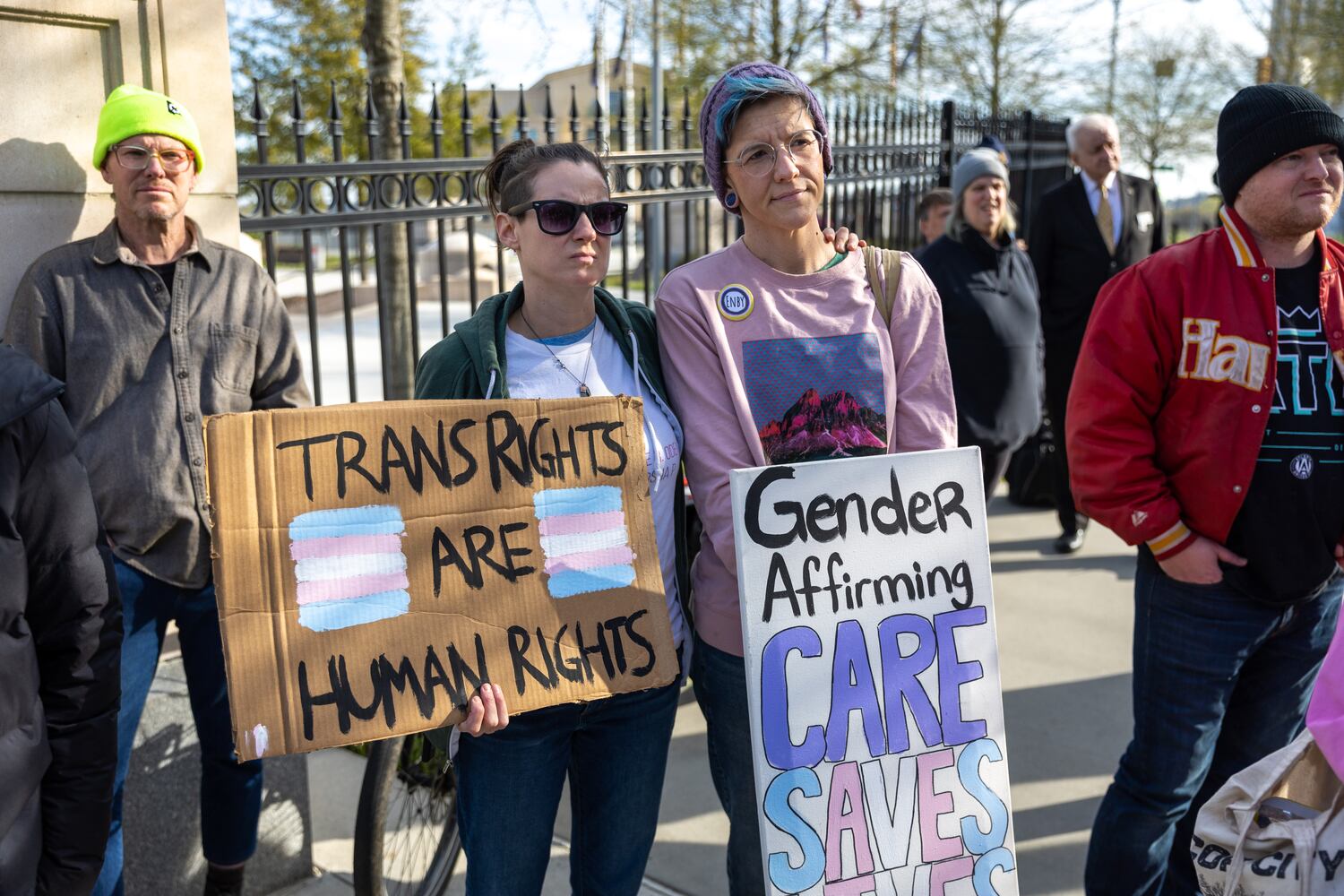The Georgia Senate on Tuesday voted to send to the governor a bill that would prevent medical professionals from giving transgender children certain hormones or surgical treatment.
The Senate voted 31-21 on a party-line vote, with Republicans supporting the measure, to agree to changes made to Senate Bill 140 by the House. That leaves it up to Gov. Brian Kemp to decide whether to sign the bill.
At issue was a change made in the House that got rid of a provision that aimed to shield medical professionals from criminal charges or lawsuits.
State Sen. Carden Summers, the Cordele Republican who sponsored the measure, told colleagues the bill protects children from taking steps toward gender transition that are permanent.
Credit: arvin.temkar@ajc.com
Credit: arvin.temkar@ajc.com
“I look forward to looking people straight in the eye and telling them that I am compassionate to their plea and I understand their passion, but we’re doing the right thing by protecting children,” he said.
Opponents say the bill goes against published medical “standards of care” and would end up hurting transgender children, who commit suicide at a higher rate than their nontransgender peers.
State Sen. Kim Jackson, a Pine Lake Democrat and the Senate’s first openly LGBTQ member, told her colleagues that the compassionate thing to do was to vote against the legislation.
“Our children are at risk when they’re not given access to the hormone therapy they need to properly manage their gender dysphoria,” Jackson said.
SB 140 would ban health care professionals from giving hormones such as estrogen or testosterone to transgender minors. Doctors also would not be allowed to perform surgeries on children seeking to align with their gender identity.
Medical professionals would still be allowed to prescribe a hormone treatment that aims to delay puberty or stop it from progressing under the proposal. Children who don’t identify with their biological sex at a young age are often prescribed the puberty blockers.
Hours after the vote, the American Civil Liberties Union of Georgia announced that it would sue the state if Kemp signs the bill. ACLU of Georgia Legal Director Cory Isaacson said Tuesday’s vote showed the Georgia Legislature has “chosen to place politics before patient care.”
“The politicians who passed SB 140 are interfering with the rights of Georgia parents to get lifesaving medical treatment for their children and preventing physicians from properly caring for their patients,” she said.
Democrats said SB 140 goes against previous Republican-backed measures that allow parents to opt their children out of school policies for things such as vaccines and masks and make other health decisions for their children. They said it is being used by Republican grassroots groups that are pushing “culture war” issues as a way to keep the GOP base energized, something Jackson called “grossly disgusting.”
“We are using children to really push forward work that’s under the guise of compassion — and I do believe the sincerity of some of the members in this room — but broadly speaking this is about bullying children to score political points,” she said. “That, to me, is extremely disheartening.”
The Senate’s version of the bill was written to guard health care workers from civil or criminal action.
Senate Health and Human Services Chairman Ben Watson, a Savannah Republican and physician, said while he had some “angst” about removing the protection for medical professionals, health care providers should be held accountable for bad actions.
“I think we should never be above the law by any means,” he said. “This is a very challenging bill. It has been something that has been heavy on hearts for everyone in this chamber. I think we have struck a good balance here.”
The bill includes an exception for the treatment of intersex children — those who are not born with the genitalia, chromosomes or reproductive organs of only one gender. There are allowances for physicians to treat children for nongender-related reasons, such as a sexual development disorder or an injury or infection.
SB 140 would also allow minors to continue receiving hormone treatments if they began before July 1, when the bill, if signed into law, would take effect.
Credit: arvin.temkar@ajc.com
Credit: arvin.temkar@ajc.com
About the Author
Keep Reading
The Latest
Featured







